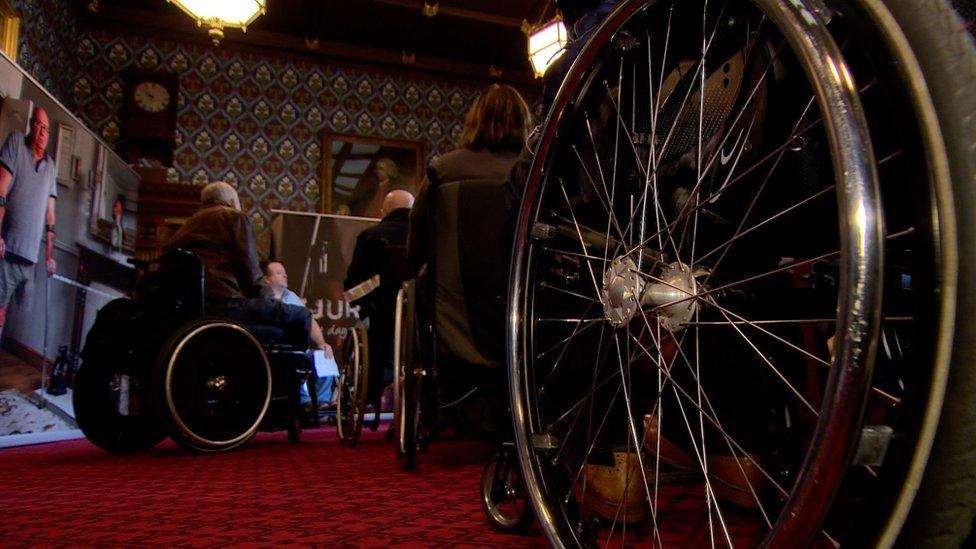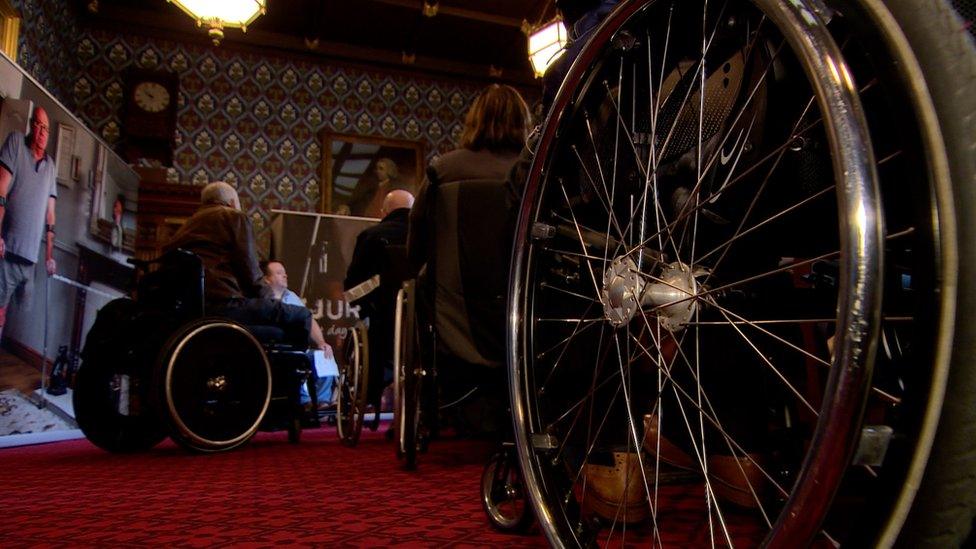Troubles victims pension: Westminster 'should fund scheme'
- Published

Judith Thompson, NI's victims' commissioner, was appearing before the Executive Office committee on Wednesday
The victims' commissioner has echoed calls by some Stormont politicians that Westminster should fund a pension for Troubles victims.
MPs passed laws last year to set up the scheme but Stormont will oversee it.
First Minister Arlene Foster has already said the costs cannot be absorbed within the existing NI budget.
Judith Thompson said it seemed "unfeasible and impractical" NI should fund the pension when it would be open to applicants across the UK.
She was appearing before the Executive Office committee on Wednesday.
Ms Thompson, who was reappointed as the commissioner for victims and survivors last summer, said it was important the pension was implemented as quickly as possible.
But she added funding complications should not be allowed to delay the scheme opening formally.
A judge-led board will decide who qualifies for the new scheme for people injured during the Troubles.

The level of payment through the scheme will depend on the severity of a victim's injuries
Former Northern Ireland Secretary Julian Smith signed legislation in January to establish the scheme for people injured "through no fault of their own".
Most people will be assessed on medical records but face-to-face assessments will be used if this is not possible.
Payments will range from £2,000 to £10,000 every year for the rest of a victim's life.
There will also be provisions to extend payments to those who care for Troubles victims for more than 35 hours a week.
The Troubles claimed more than 3,500 lives and the Northern Ireland Office has estimated a further 40,000 people were injured.
Eligible victims will have to apply for the payments and the scheme will open for applications by the end of May 2020.
'Failure to deliver'
Ms Thompson was also asked about the government's commitment to implement plans to address the legacy of the past.
As part of the deal which saw Stormont return, the government pledged, within 100 days, to introduce legislation to implement a legacy deal struck five years ago.
It includes an Historical Investigations Unit to look into Troubles killings.
Ms Thompson said she was not privy to updates on progress but said she was "as conscious as everyone else that those 100 days are passing".
"I think it would be fair to say I have concerns," she added.
Deputy First Minister Michelle O'Neill said she met PSNI Chief Constable Simon Byrne on Wednesday, and said he told her he had not been consulted about the government's commitment to implement legacy plans within 100 days.
The Sinn Féin vice president said neither the chief constable nor other stakeholders and victims' groups had been consulted about the legislation, and by her count 54 out of the 100 days had now passed.
She added it pointed to a "failure to deliver" by the British government.
Ms O'Neill will meet Secretary of State Brandon Lewis along with Arlene Foster to discuss some of the government's commitments in the most recent power-sharing deal.
The Northern Ireland Office has been approached for comment about the legacy timeframe.
- Published5 February 2020

- Published31 January 2020
